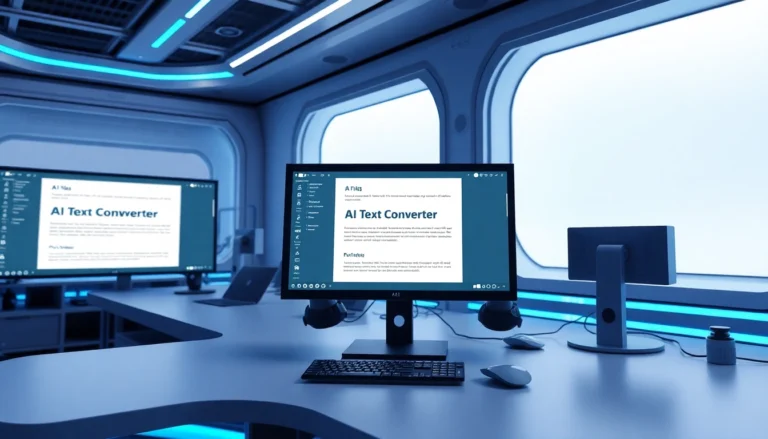Understanding Container Rental: Types and Uses
In today’s dynamic business and construction environments, container rental has become an essential solution for a wide range of storage, transportation, and site management needs. Whether you’re managing a construction project, requiring temporary storage space, or facilitating logistics for goods movement, understanding the different types of containers and their applications is fundamental to making informed decisions. This comprehensive guide explores the various container options available for hire, their practical uses, and factors to consider to optimize their benefits.
Different Types of Containers Available for Rental
Container rental services offer a diverse array of containers, each designed to meet specific needs across industries. Familiarity with these options enables users to select the most suitable container type for their project or operational requirements. Here are the primary categories:
Standard Shipping Containers
Standard shipping containers, often known as dry containers, are the most commonly rented units. Typically available in sizes from 10ft to 40ft, these are made of corrugated steel with a weatherproof, secure sealing. They are ideal for transporting and storing a wide variety of goods, from industrial materials to personal belongings. Their robustness and standardized dimensions make them compatible with most transportation modes, including ships, trucks, and trains.
High-Cube Containers
High-cube containers are an enhanced version of standard containers, offering an extra foot in height (usually 9ft 6in compared to 8ft 6in). This additional space provides increased volume, making them perfect for bulky or voluminous items. They are increasingly popular in international shipping and as temporary storage solutions that require maximum internal space.
Open-Top Containers
Open-top containers are designed with a removable roof, facilitating the easy loading and unloading of oversized or heavy items that cannot fit through traditional doors. They are ideal for transporting machinery, construction debris, or bulk materials like sand or gravel. Their design allows for flexibility in cargo loading methods, such as cranes or forklifts from above.
Flat-Rack and Platform Containers
These containers are specialized with foldable or removable end walls, transforming into open-sided platforms. Used mostly in the transportation of oversized or oddly shaped equipment, flat-rack containers are essential in industries like construction, manufacturing, and heavy machinery transport.
Refrigerated Containers (Reefers)
Refrigerated containers are equipped with temperature control systems, enabling the safe transportation and storage of perishable goods such as food, pharmaceuticals, and other temperature-sensitive items. Rentals typically include options for different temperature ranges, ensuring compliance with industry standards.
Specialized and Customized Containers
For unique requirements, rental providers offer containers that can be customized into offices, site accommodation, workshops, or even luxury modular units. These are often used on construction sites or event venues, providing versatile, on-demand structures.
Common Applications in Construction, Storage, and Logistics
Container rental solutions find extensive application across various sectors owing to their flexibility and operational efficiency. Below are some prominent uses:
Construction Industry
- Site Storage: Secure storage of tools, machinery, and materials, reducing theft and damage risk.
- Site Offices: Converted containers serve as temporary project offices, meeting rooms, or security posts.
- Waste Management: Open-top and roll-on/roll-off containers facilitate efficient disposal of construction debris.
Temporary and Permanent Storage
- On-site Storage: Renting containers provides flexible space for seasonal inventory, equipment, or personal belongings during home renovations.
- Off-site Storage: Portable units can be moved to off-site locations to free up space or for strategic logistics planning.
Logistics and Transportation
- Intermodal Shipping: Containers serve as standard units for seamless movement across transport modes, reducing handling and risk of cargo damage.
- Inventory Management: Storage containers enable just-in-time inventory control, especially for bulk or seasonal goods.
Events and Temporary Installations
From festivals to pop-up retail stores, containers can be quickly converted into kiosks, facilities, or accommodations, creating versatile, temporary infrastructure.
Choosing the Right Container Based on Project Needs
Selecting the appropriate container requires a thorough assessment of your specific project parameters. Considerations include:
Capacity and Size Requirements
- Estimate the volume of items or equipment to be stored or transported. For large, bulky items, high-cube or open-top containers may be ideal.
- Determine physical space availability on-site to ensure the selected container fits comfortably.
Duration of Rental
- Short-term projects might necessitate flexible rental terms, ensuring cost-effectiveness without long-term commitments.
- Long-term storage or operational needs could benefit from discounted rates associated with extended rentals.
Material and Durability
- Assess environmental conditions—exposure to weather, corrosive elements, or heavy usage—to determine if a standard steel container suffices or if specialized units are necessary.
Security and Compliance
- Consider security features such as lockboxes, security bars, and alarms.
- Ensure containers comply with relevant regulations, especially for storing hazardous or sensitive materials.
How to Effectively Rent a Container: Step-by-Step Guide
Assessing Your Storage or Transportation Requirements
Begin by conducting a detailed analysis of what needs to be stored or transported. This involves measuring volume, understanding access points, and identifying potential environmental factors like weather or security risks. Developing a clear specifications list streamlines the selection process and ensures you don’t over- or under-allocate resources.
Comparing Rental Providers and Pricing Options
Explore multiple providers to determine the best value for your needs. Factors to evaluate include:
- Pricing models—weekly, monthly, or long-term rates
- Additional fees—delivery, pickup, security, and setup charges
- Availability of different container types and sizes
- Reputation and reviews from previous clients
- Flexibility in rental agreements and terms
For instance, versatile providers often offer quick delivery across the UK and tailored rental periods to fit project timelines, reducing overall costs and logistical complexity.
Arranging Delivery, Pickup, and Ongoing Management
Once a suitable provider is chosen, coordinate logistics for delivery and pickup dates that align with your project schedule. It’s advisable to confirm:
- Exact delivery points and access routes
- Container placement instructions
- Availability of on-site assistance or supervision during setup
- Monitoring and maintenance protocols for ongoing use
Many rental services now offer real-time tracking and management tools, enhancing operational oversight and reducing downtime.
Cost Factors and Budgeting for Container Rental in the UK
Pricing Models: Weekly, Monthly, and Long-term Rates
The overall cost of container rental varies based on duration, container type, and provider policies. Typical models include:
- Weekly Rates: Suitable for short-term needs, often ranging from £20 to £60 for standard units.
- Monthly Rates: Economical for medium-term projects, offering discounts for longer commitments. Expect prices from £80 to £250 per month depending on size and features.
- Long-term Leasing: Negotiable rates often below weekly/monthly premiums, ideal for ongoing storage or operational facilities.
Additional Fees: Delivery, Setup, and Security Features
Additional charges can significantly impact total expenditure. Typical fees include:
- Delivery and collection costs, often ranging from £50 to £200 depending on distance and container size.
- Setup or foundation preparation if required to ensure stable placement.
- Security enhancements such as padlocks, lockboxes, and alarm systems, often included or available as extras.
In some cases, bundling services or negotiating package deals can yield substantial savings, especially for large or long-term rentals.
Tips for Negotiating the Best Rental Terms and Discounts
- Leverage longer rental commitments for reduced rates.
- Request bundled packages that include delivery, setup, and security at a discounted rate.
- Compare quotes across multiple providers to identify the most competitive offers.
- Highlight your flexibility with pickup and delivery schedules to secure better terms.
- Ask about seasonal promotions or unadvertised discounts, particularly during off-peak periods.
Maximizing the Value of Container Rental: Best Practices
Proper Site Preparation and Container Positioning
Optimizing container deployment involves planning site access and preparation. Ensure:
- The ground is level, stable, and capable of supporting the container’s weight.
- Access routes are clear of obstructions for delivery vehicles and equipment.
- Containers are positioned to facilitate easy loading/unloading and security considerations.
Using foundation blocks or concrete pads can prevent shifting and corrosion, extending container lifespan.
Ensuring Security and Regulatory Compliance
Security measures should include robust locking systems, surveillance cameras, and proper site fencing. Additionally, consult local regulations regarding storage of specific materials, height restrictions, or licensing requirements to avoid potential legal issues.
Maintenance Tips to Extend Container Lifespan and Performance
Regular inspections for rust, leaks, or damage can prevent deterioration. Cleaning and repainting exposed surfaces, lubricating locks, and addressing minor repairs promptly help maintain structural integrity. Proper ventilation also reduces condensation and corrosion inside the container.
Future Trends in Container Rental and Storage Solutions
Emerging Innovations in Portable Storage Technology
Advancements include smart containers equipped with IoT sensors for real-time monitoring of temperature, humidity, and security status. Modular designs facilitate quick customization, and automation streamlines deployment processes, further enhancing efficiency.
Eco-Friendly Container Options and Sustainability Initiatives
Eco-conscious providers are increasingly offering repurposed, refurbished, and recyclable containers to reduce environmental footprint. Solar-powered climate control units and low-impact construction practices are also gaining traction.
Growing Demand for Flexible Rental Solutions in the UK
Markets are witnessing a surge in demand for short-term, adaptable storage and transport arrangements driven by fluctuating economic activity, Brexit-related logistics adjustments, and the rise of remote and mobile workforces. Industry players are responding with more versatile offerings, including fully customizable containers, on-demand scaling, and integrated management platforms.







